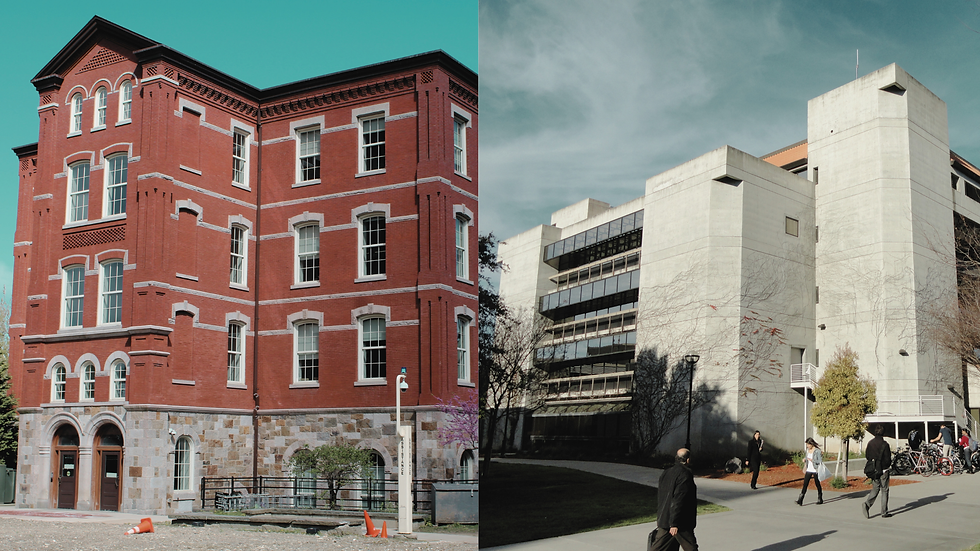University of Cambridge wins injunction to block protests on campus
- Endangered Scholars Worldwide
- Apr 17, 2025
- 3 min read

On March 21, the University of Cambridge received a High Court order blocking Israel-Palestine protests in certain areas of its campus until the end of July. Earlier, in February, a judge rejected the university's request for a five year injunction against direct actions related to the conflict at multiple sites without its permission. Following this, the university returned to the High Court seeking a shorter, four-month order to prevent disruptions at upcoming graduation events.
Mr. Justice Soole granted the injunction, citing an “imminent and real risk of a recurrence” of campus protests and a “strong probability” of further disruption without the injunction. He stated, “I am satisfied that there is a compelling need for the granting of an injunction,” and added that the injunction provided a “fair balance between the rights of all parties.”
Myriam Stacey KC, representing the university, identified the protesters as mostly associated with Cambridge for Palestine. A spokesperson for the university welcomed the court's decision, noting it would “safeguard” university property and graduation ceremonies while also protecting staff's right to work. They emphasized, “This was never about preventing lawful protest. The injunction safeguards a very small part of the university estate from an occupation that would prevent graduations from going ahead. It also protects the right for our staff to work.”
However, the European Legal Support Center (ELSC) opposed the injunction arguing it was a “disproportionate infringement” on the protesters' human rights and could set a “dangerous precedent” for campus protests.
Human rights organization Liberty, which intervened in the case, called the injunction “overreaching” and “excessive,” claiming it would “curb students’ right to freedom of expression.” Ruth Ehrlich, Liberty’s head of advocacy and campaigns, said the injunction would “severely restrict protest rights on campus,” adding, “Students have long been at the forefront of movements for social change, whether in opposing apartheid or rising tuition fees. It is not right that universities are curbing students’ ability to do so and creating a hostile space for people simply trying to make their voices heard.” Anna Ost, senior legal officer for the ELSC, urged the university to “urgently review their investments” rather than attempting to “silence their critics with this injunction.”
Pro-Palestinian student protests began at Cambridge University in May 2024, aligning with a global wave of activism responding to the war in Gaza. These protests were part of broader movements at UK universities, including Oxford and Bristol, calling for divestment from companies linked to Israel's military actions. On May 6, students established an encampment outside King's College, demanding divestment from arms suppliers to Israel. Another encampment near the Senate House led to disruptions, causing graduation ceremonies to be relocated. The university engaged with protesters, emphasizing safety and condemning hatred. In July 2024, the administration agreed to review its investments in arms companies, proposing a task force with student participation. The Cambridge encampment lasted approximately 82 days, concluding in August 2024 after an agreement between activists and the university.
In response to the injunction, Cambridge for Palestine issued a statement condemning the court’s decision as “a violent move to criminalize and police our movement.” They added, “Today, the court and the university have chosen to protect imperial interests, defending genocide over the students of conscience that speak out against it. We know that this setback cannot be separated from the broader pattern of anti-Palestinian targeting that is occurring on campuses across the UK, US, and world, grounded in decades of policy based on racism and Islamophobia. We know, however, that no injunction– no policy, no threat– has lessened the steadfastness of the Palestinian people. As Israel carries out massacre after massacre in Gaza and the West Bank, we derive our resolve from steadfast people of Palestine, and will continue to direct our energy to the most pressing fight: the struggle for divestment and an end to Cambridge’s ongoing partnership in the colonization of Palestine.”



